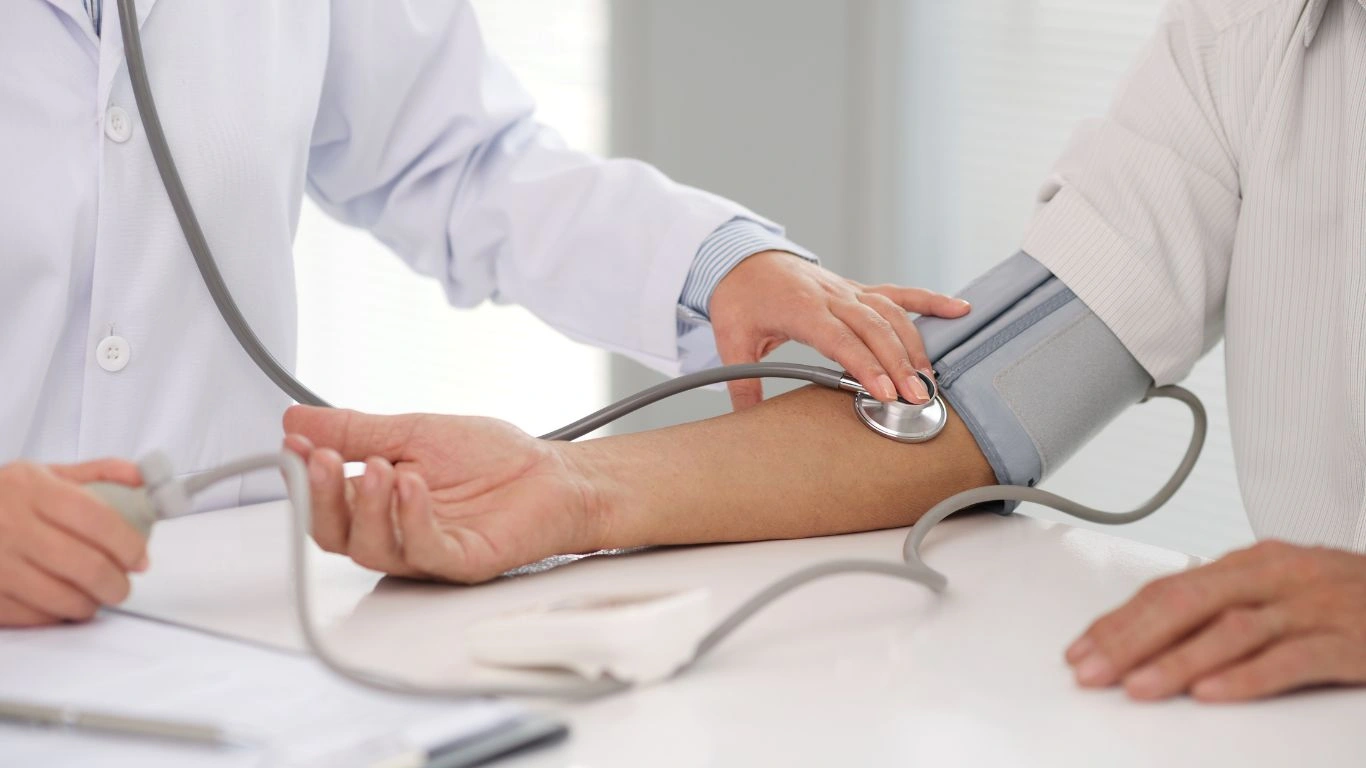Herbal Treatments for High Blood Pressure – A Comprehensive Guide
Managing high blood pressure with herbs is an age-old practice that many people turn to as a natural alternative to medication. In this guide, we’ll explore a variety of herbal treatments, how they can benefit your blood pressure, and tips for safely using them.
High blood pressure, also known as hypertension, affects millions of people worldwide. While lifestyle changes and medications are often recommended to control this condition, many individuals look for natural remedies to manage their blood pressure. Herbal treatments have gained popularity as a gentle, effective approach to promoting heart health. In this guide, we’ll dive into some of the most commonly used herbs for high blood pressure and how they can help.

Understanding High Blood Pressure
Before diving into herbal treatments, it’s essential to understand high blood pressure. It occurs when the force of blood against your artery walls is too high. Over time, this condition can lead to serious health issues, including heart disease, stroke, and kidney damage.
Normal blood pressure is typically around 120/80 mm Hg. Anything consistently above this level may indicate hypertension. Lifestyle changes like reducing salt intake, exercising regularly, and managing stress are key to maintaining healthy blood pressure levels.
Popular Herbal Treatments for High Blood Pressure
Herbal remedies for high blood pressure have been used for centuries across cultures. These herbs are believed to have natural properties that can help lower blood pressure by relaxing the blood vessels, reducing stress, and improving circulation. Here are some of the most popular herbal treatments for high blood pressure:
1. Garlic
Garlic is one of the most well-known herbs for lowering blood pressure. It contains allicin, a compound that helps relax blood vessels, thus improving blood flow. Numerous studies have shown that garlic can lower both systolic and diastolic blood pressure in people with hypertension.
How to use it: You can consume garlic raw, cooked, or as a supplement. A common dosage is one to two cloves of fresh garlic daily. However, if you’re taking blood thinners, consult with your healthcare provider before using garlic in large amounts, as it may increase the risk of bleeding.
2. Hibiscus
Hibiscus tea has long been used in various cultures for its medicinal benefits, including its ability to lower blood pressure. Research shows that hibiscus can help lower both systolic and diastolic pressure, especially in people with mild hypertension.
How to use it: Drinking hibiscus tea 2-3 times a day is a common way to reap its benefits. Simply steep dried hibiscus flowers in hot water for a few minutes to prepare the tea.
3. Hawthorn
Hawthorn is an herb that has been used for centuries to improve heart health. It helps increase blood flow to the heart and has been shown to lower blood pressure by dilating the blood vessels. Hawthorn is often recommended for people with high blood pressure related to heart disease.
How to use it: Hawthorn can be consumed as a tea, tincture, or in capsule form. The recommended dosage is typically 300 mg, taken 2-3 times daily, but it’s best to follow the directions on the specific supplement you’re using.
4. Olive Leaf
Olive leaf extract is rich in compounds that have antioxidant and anti-inflammatory properties. Studies suggest that it can help lower high blood pressure by improving blood vessel function and reducing inflammation.
How to use it: Olive leaf extract is available in capsules or liquid form. A typical dosage is around 500 mg to 1,000 mg daily, but be sure to follow product instructions.
How Herbal Treatments Help in Managing High Blood Pressure
Herbal treatments for high blood pressure work in several ways to help lower your blood pressure naturally. Here are some common mechanisms:
Relaxing Blood Vessels
Many herbs work by relaxing the blood vessels, which reduces resistance and allows blood to flow more freely. For example, garlic and hawthorn are known to have this effect, making it easier for the heart to pump blood without putting too much pressure on the walls of the arteries.
Reducing Stress and Anxiety
Herbs like valerian root and lavender have calming effects, which can help reduce stress and anxiety. Since stress is a significant contributor to high blood pressure, these herbs can be useful in managing hypertension.
Improving Circulation
Some herbs, like ginger and cayenne pepper, promote better circulation by improving blood flow. This helps the body get rid of excess fluids, reduces the workload on the heart, and may lower blood pressure over time.
Anti-Inflammatory Effects
Chronic inflammation is another factor that can contribute to high blood pressure. Herbs like olive leaf and turmeric have strong anti-inflammatory properties that can help reduce inflammation, which, in turn, can help control blood pressure.
Precautions When Using Herbal Treatments
While herbal treatments are generally safe, it’s important to keep a few things in mind:
Consult Your Doctor
Before starting any herbal regimen, it’s essential to talk to your doctor, especially if you’re already taking medication for high blood pressure. Some herbs can interact with prescription drugs, causing unintended side effects or reducing their effectiveness.
Monitor Your Blood Pressure
When using herbs to manage high blood pressure, it’s essential to regularly monitor your blood pressure to ensure it’s within a healthy range. This will help you and your doctor determine if the herbs are working effectively and if any adjustments need to be made.
Start Slowly
Introduce herbs into your routine gradually. If you’re using supplements, start with a lower dose and increase it as needed. This allows your body to adjust and helps prevent any potential adverse reactions.
Conclusion
Herbal treatments can be an effective part of a broader strategy for managing high blood pressure. While these remedies can provide significant benefits, they should be used in combination with a healthy diet, regular exercise, and other lifestyle changes. Always consult your healthcare provider before starting any herbal treatment, especially if you are already on medication.
Appendices
References
- National Institutes of Health (NIH). (2023). “Herbal Remedies for Hypertension.” Read Article
- Smith, A., & Johnson, R. (2022). “The Role of Herbs in Blood Pressure Management.” Journal of Alternative Medicine, 38(4), 150-160. Read Article
- American Heart Association (AHA). (2024). “Hypertension: Natural Remedies.” Read Article
FAQs
- Can herbal treatments replace medication for high blood pressure? Herbal treatments should be used as a complement to, not a replacement for, prescribed medication. Always consult with your healthcare provider.
- How long does it take to see results from herbal treatments for blood pressure? Results can vary depending on the herb and individual. Some people notice improvements within a few weeks, while others may take longer.
- Are there any side effects associated with herbal treatments? Some herbs may cause side effects like digestive issues or allergic reactions. Always start with a small dose and consult your doctor if you experience any adverse reactions.
- Can I combine multiple herbs for high blood pressure? Yes, many people combine herbs like garlic and hibiscus for added benefits. However, consult your doctor to avoid potential interactions with medications.
- Is it safe to use herbal treatments during pregnancy? Some herbs may not be safe during pregnancy, so always consult your doctor before using any herbal remedies if you’re pregnant or breastfeeding.
Disclaimer: The information provided in this article is for educational purposes only and is not intended to substitute for professional medical advice. Always consult your healthcare provider before starting any herbal treatment or making changes to your health regimen.

Dr. Gwenna Aazee is a board-certified Internal Medicine Physician with a special focus on hypertension management, chronic disease prevention, and patient education. With years of experience in both clinical practice and medical writing, she’s passionate about turning evidence-based medicine into accessible, actionable advice. Through her work at Healthusias.com, Dr. Aazee empowers readers to take charge of their health with confidence and clarity. Off the clock, she enjoys deep dives into nutrition research, long walks with her rescue pup, and simplifying medical jargon one article at a time.







